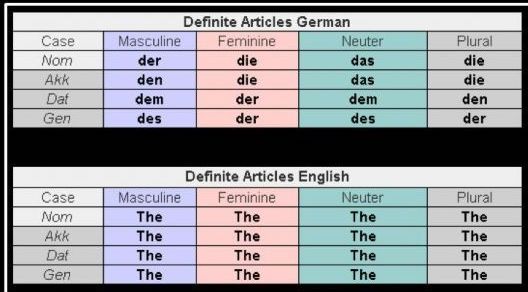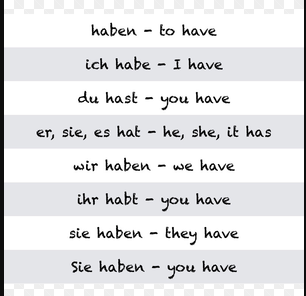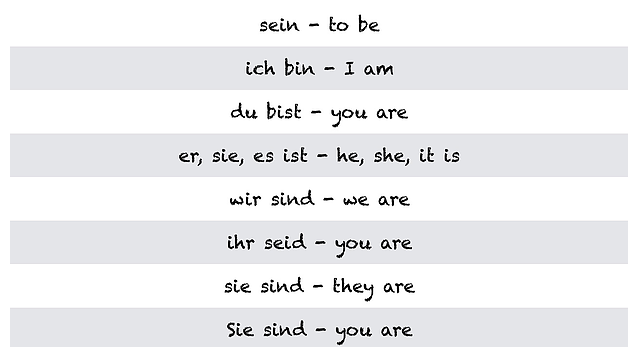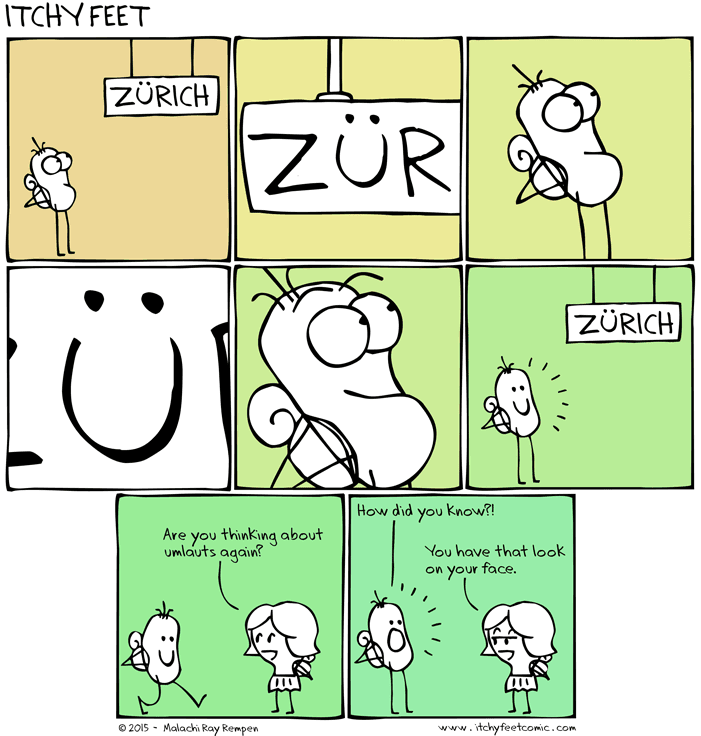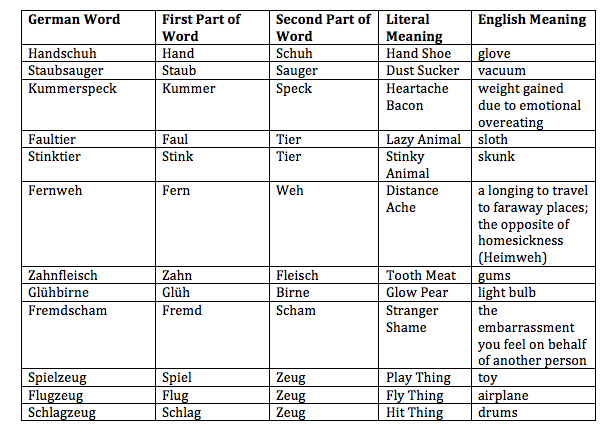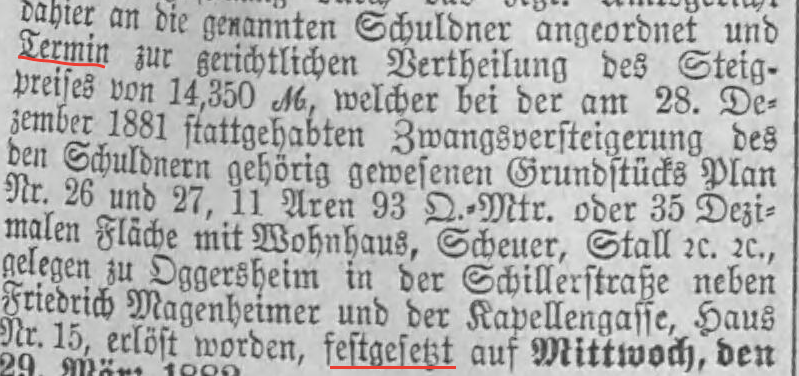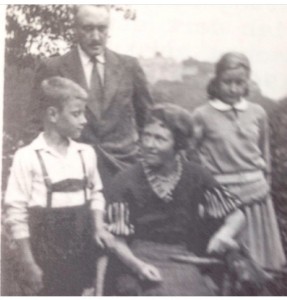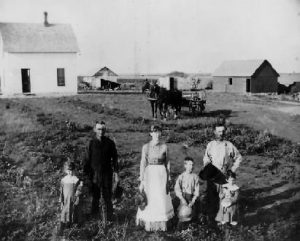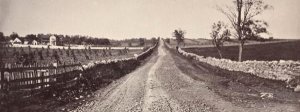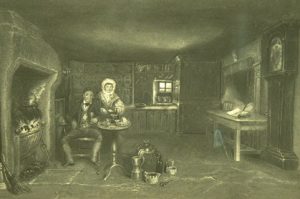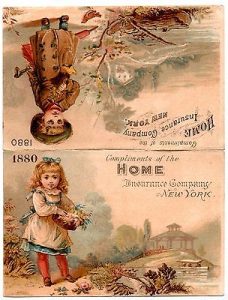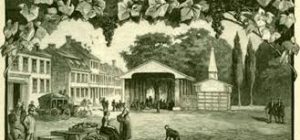Genealogy can be challenging enough searching for records – but what if you don’t speak the language in which those records are written? In this post, I’ve gathered all my German genealogy vocabulary articles for you in one place, so that you can find the words that best fit your genealogy needs. Enjoy!
Category: German Language
German Military Record Vocabulary: The Most Important Words
Deciphering military records can be hard. Filled with abbreviations, town names you’ve never heard of, and complicated military terms, these records are sure to give anyone a headache. But if your ancestor was in the military, these documents are often full of fascinating insight and incredible details about your soldier’s life – thus making them well worth the work.
Below, I’ve compiled a list for you of the most common words on German military records (in my translating experience). I hope they will make your deciphering work a little easier. Now, off to find your soldier!
| Militär | Military |
| Schlacht | Battle |
| Kämpfe | Fights, Conflict, Battle |
| Krieg | War |
| Waffen | Arms |
| Armee, Heer | Army |
| Amt | Office |
| Wehrmacht | Armed Forces |
| Truppen | Troops |
| Marine | Navy |
| Dienstgrad | Military Rank |
| Kommandeur | Commander |
| Führer | Leader |
| Soldat | Soldier |
| Gefreite | Lance-Corporal |
| Grenadier | Rifleman, Infantryman |
| Musketier | Musketeer |
| Stab | Staff |
| Feldwebel, Wachtmeister, Stabsunteroffizier | Sergeant |
| Kompagnie | Company |
| Einheit | Unit |
| Regiment | Regiment |
| Korps | Corps |
| Bataillon (Batl.) | Battalion |
| Abteilung (Abt.) | Division |
| Infanterie | Infantry |
| Batterie | Battery |
| Artillerie | Artillery |
| Ersatz, Reserve | Reserves |
| Freiwillige | Volunteer |
| Füsilier | Heavy Infantry Unit |
| Luftwaffe | Airforce |
| Flugzeug, Flieger | Airplane |
| Flak | Anti-Aircraft |
| Lazarett | Field Hospital |
| Feld | Field |
| Abwehr | Defense |
| Kanone, Geschütz | Cannon |
| Eintritt | Joining Up |
| Führung | Conduct |
| Dienst | Service |
| Versetzt | Transferred |
| Entlassung | Discharge |
| Orden | Medals, Decoration |
| Bestrafung, Strafe | Punishment |
| Verletzung | Injury |
| Kriegsgefangene | Prisoner of War |
| Tot | Dead |
| gefallen | Died in Battle |
German Church Record Vocabulary: The Most Important Words
German church records can be a genealogist’s dream. Filled with names, dates, places of residence and more, these entries can be the key to breaking down the brick walls in our genealogy research. If you don’t speak German, however, these records may seem a bit overwhelming. But never fear! Below, I’ve compiled the most important vocabulary words you’ll need to know when analyzing German church records – keep this list on hand, and you’ll be well on your way to filling in your family tree.
Important Church Record Vocabulary
| Name | Name, Namen, Nahme, Nahmen |
| Parish | Pfarre, Gemeinde |
| local | hiesig |
| Baptism | Taufe |
| Birth | Geburt |
| Child | Kind |
| Son | Sohn |
| Daughter | Tochter |
| Mother | Mutter |
| Father | Vater |
| Parents | Eltern, Aeltern |
| Boy | Knabe, Junge |
| Girl | Mädchen |
| Stillborn | totgeboren, todtgeboren |
| Year, Month and Day | Jahr, Monat und Tag |
| (In the) Morning; Afternoon; Evening | früh; nachmittags; abends |
| Legitimate; Illegitimate | ehelich; unehelich |
| Profession/Occupation | Stand, Beruf, Gewerbe |
| Godparents/Sponsors | Paten, Pathen, Taufpaten, Taufpathen, Gevatter |
| Witnesses | Zeugen, Beistand, Beystand, Beistände |
| Pastor/Priest; Assistant Pastor | Pfarrer, Priester; Koop., Coop. |
| Marriage | Trauung, Ehe |
| Groom | Bräutigam |
| Bride | Braut |
| Married | verheiratet, verehelicht |
| Wife | Frau, Ehefrau, Gattin, Weib, Eheweib |
| Husband | Mann, Ehemann, Gatte |
| Location/Place of Residence | Ort, Wohnort |
| Divorced | geschieden |
| Widower/Widow | Wittwer, Witwer; Wittwe, Witwe |
| Death | Tod |
| Die; Died | sterben; gestorben, starb |
| Burial/Funeral | Begräbnis, Beerdigung |
Author’s Note: For more church record vocabulary and tips on deciphering your church records, check out my newest book The Magic of German Church Records: Finding the Key to Your Ancestor’s Past.
How Did My Ancestor Die? 15 Common Causes of Death in German Genealogy (PREMIUM)
Whether we admit it or not, humans have a sort of morbid curiosity with death. This curiosity often extends to our ancestors – how did they meet their demise? If we are lucky enough to find their death records, either in certificate form or in church books, then the answer is right in front of our eyes. Of course, as with most things related to German genealogy, their cause of death is usually written in the old German script – difficult to read for most people. I therefore have gathered for you a list of the 15 most common causes of death I have come across in my translations, summarized for you in the table below:
This post contains some affiliate links, which does not affect you at all, but does helps support my business as I earn a small amount from qualifying purchases as an Amazon associate. This in turn helps me to continue supporting you with educational (I hope!) genealogy content. That being said, I personally own – and personally love – all of the books I recommend, and hope that they help you as much as they have helped me. I couldn’t translate without them!
It is also important to know other parts of the body when deciphering words related to your ancestor’s cause of death. Below are three images with vocabulary for both the outside and the inside of the human body (Körper):

Finally, one good word to know in relation to illnesses is the word “entzündung”, which means “inflammation”. This word often attaches to other words (body parts) to create a word for an illness. See the site wordmine.info for various illnesses that use the word “entzündung”:
For more information on common illnesses found in German genealogy documents, see If I Can, You Can Decipher Germanic Records, by Edna Bentz. It’s a great resource! Happy researching!
What Genealogists Need to Know About the German Language
While learning German is obviously not required for German genealogy research, it often helps to have at least a bit of understanding of the language when looking for your ancestors. In addition to being able to recognize the most important genealogy words in German records, knowing a little about how the German language works can help you to narrow down what documents you think are important for your genealogy research. Below, I have summarized some of the most basic facts about the German language, in the hopes that this may give you a bit of a leg up when looking at your German documents.
1. All nouns are capitalized.
In the German language, all nouns (persons, places and things) are capitalized, no matter if it is a “proper noun” or not. For example, the word birth (Geburt) is capitalized in German, as is the word child (Kind). So if you see a capital letter, you now know that it does not necessarily mean that the word is a name – it’s likely just a noun.
The word Geburt (birth) is written with a capital “G”.
2. German has many different words for the word the.
Crazy, right? Depending if the word is the subject (Nom), direct object (Akk), indirect object (Dat), or possessive (Gen)*, the German word for the changes. No need to worry about what these grammatical terms mean for this article (unless you are a grammar nerd like myself – in that case, see below), but if you see any of the words above, you will know they all mean the.
3. Lowercase words starting with ge- are likely past tense words.
The German past tense is formed with either haben/sein (to have or to be – see how they conjugate below) + the past tense of the verb, which is usually formed with ge-. For example, the German word for to eat is essen. To say I ate, you would say Ich habe gegessen. The German word for to drive is fahren. To say I drove, you would say Ich bin gefahren.
Some verbs use a “t” form in their past tense instead of the “-en” ending. For instance, the word for to play is spielen in German, with the past tense (I played) written as Ich habe gespielt. While getting into all the rules of the past tense here would take a bit too long, the important idea to take away is that if you see haben or sein plus ge-verb, the sentence is likely in past tense.
4. Umlauts can also be written out with an “e” after the vowel.
Most German writers do use the umlaut (ä, ö or ü), but in some texts, you will see this sound written as ae, oe and ue instead. In genealogy, this is especially relevant for the spelling of certain last names. For instance, the last name Mueller is spelled M-u-e-l-l-e-r in America, but our German ancestors spelled it M-ü-l-l-e-r. The ü changed to a ue in English spelling.
5. German loves compound words.
The German language consists of many compound words, or two words combined together to form one. How does this help you? Well, if you come across a word and can’t find it in your dictionary, try looking up the two parts of the word individually. This should then help you to form a better idea of what the author could have meant.
Some fun examples of German compound words include:
6. Sometimes the verb is written at the very end of the sentence.
While many German sentences do use Subject-Verb-Object word order (just like we do in English: “I ate the burger”, in which the verb, ate, comes right after the subject, I), sometimes German puts the verb at the very end of a sentence or phrase. Why would they do such a crazy thing, you ask? Well, if the sentence includes a certain type of word (a subordinating conjunction*, to be exact), such as weil (because), dass (that), ob (whether), während (during), etc., this is a signal for the verb to move to the end of a sentence, as it cannot be directly after the subject when one of these words are present. So if you don’t see the verb after the subject, keep reading, and it may be the very last word in the sentence. See this article on German word order for more information: https://www.fluentu.com/blog/german/learn-german-word-order/.

Mark Twain explains this crazy grammar best in his article “The Awful German Language“:
“An average sentence, in a German newspaper, is a sublime and impressive curiosity; it occupies a quarter of a column; it contains all the ten parts of speech — not in regular order, but mixed; it is built mainly of compound words constructed by the writer on the spot, and not to be found in any dictionary — six or seven words compacted into one, without joint or seam — that is, without hyphens; it treats of fourteen or fifteen different subjects, each inclosed in a parenthesis of its own, with here and there extra parentheses which reinclose three or four of the minor parentheses, making pens within pens: finally, all the parentheses and reparentheses are massed together between a couple of king-parentheses, one of which is placed in the first line of the majestic sentence and the other in the middle of the last line of it — after which comes the VERB, and you find out for the first time what the man has been talking about; and after the verb — merely by way of ornament, as far as I can make out — the writer shovels in “haben sind gewesen gehabt haben geworden sein,” or words to that effect, and the monument is finished. I suppose that this closing hurrah is in the nature of the flourish to a man’s signature — not necessary, but pretty. German books are easy enough to read when you hold them before the looking-glass or stand on your head — so as to reverse the construction — but I think that to learn to read and understand a German newspaper is a thing which must always remain an impossibility to a foreigner.”
You can see what Mark Twain means in this newspaper article I had the pleasure of translating below. The subject of the sentence, Termin (appointment), is in the second line, while the verb festgesetzt (was set) doesn’t appear until 9 lines later! So if you can’t find the verb in your document, don’t give up – just read on for a few more hours and it may eventually appear.
While there are of course many more intricacies to the German language, it is my hope that these basic tips will give you a bit more of an idea of how German works. The German language is at times fascinating, at times entertaining, and yes, as Mark Twain put it, at times awful – but overall, it is a great language to know, especially if you’re researching your German genealogy. Until next time, auf Wiedersehen (which happens to be another great compound word: wieder means again, sehen means to see)!
Image Credit: www.itchyfeetcomic.com
* Cases in German, explained with English examples:
Example Sentence: The girl threw me the ball.
Nominative case is the subject, which answers the question “who is doing the action?”.
Who threw the ball? The girl. Girl is therefore the subject of the sentence.
Accusative case is the direct object, which answers the question “who or what after the verb?”. The girl threw what? The ball. Ball is therefore the direct object of the sentence and in the accusative case.
Dative case is the indirect object, which answers the question “to whom or for whom after the verb?”.
The girl threw the ball to whom? To me. Me is therefore the indirect object of the sentence and in the dative case.
Genitive case in German is the possessive case, expressed as “The sister of my father….”
Of my father would be in the genitive case in German.
*Subordinating conjunction: http://grammar.yourdictionary.com/parts-of-speech/conjunctions/subordinating-conjunctions.html
Top 25 Milestone Words for Finding Your German Ancestor
Birthdays. Weddings. Funerals. While our German ancestors may have lived hundreds of years ago, the life milestones we deem important today held similar significance to our relatives in the past. For us family historians, using these milestones can be extremely helpful in piecing together our ancestors’ life stories. But what if you don’t speak German?
Below, I’ve gathered together a list of 25 of the most important milestone words in German genealogy. The German word is on the left, followed by the English translation on the right. An example of the word in the old German handwriting (Kurrentschrift) is also provided.* Knowing these German words, along with a bit of the old German handwriting, can be a great help in deciphering German records and discovering the mysteries of the past (and if you would like a professional genealogy translation, you can always contact me here).
* Keep in mind that handwriting varied by person, place and time, so the handwriting sample is only provided to give you an idea of how the word might look. See Twenty Tips for Deciphering Old German Handwriting for more information.
25 Milestone Words in German Genealogy
1. Geburt: birth
2. geboren: born; also means née when before a last name
3. Kinder: children
4. ehelich: legitimate
5. unehelich: illegitimate
6. getauft: baptized
7. Taufe: baptism
8. konfirmiert: confirmed
9. ledig (led.): single, unmarried
10. verlobt: engaged
11. Ehe: marriage
12. Hochzeit/Trauung: wedding
13. geheiratet/verehelicht/getraut: married (as in the action “The man married the woman.”)
14. verheiratet: married (as in the state of being married, “He is married”)
15. Frau/Ehefrau/Gattin/Weib*: wife
*This word is related etymologically to our English word “wife.”
16. Mann/Ehemann/Gatte: husband
17. Zeugen: witnesses
18. Eltern: parents
19. Wohnort: place of residence
20. geschieden: divorced
21. Witwe: widow
22. Witwer: widower
23. gestorben: died
24. Tod: death
25. Begräbnis/Beerdigung: funeral or burial
10 German Words You Won’t Find in a Dictionary
Genealogy can be a fascinating journey. Finding your ancestor’s names, what they did with their lives and what their hopes and dreams were is an amazing process. That being said, genealogical research is certainly not without its challenges.
Delving into the depths of history is no easy feat, and it can be even more difficult if your ancestors spoke another language. In many cases, a bilingual dictionary can help you in your search for your family members. What to do, however, if a word is outdated and no longer in the dictionary? While contacting a translator can help you with this problem, sometimes it can be fun to try things yourself. Below, ten common German genealogy words you will not find in a German-English dictionary:*
This post contains some affiliate links, which does not affect you at all, but does helps support my business as I earn a small amount from qualifying purchases as an Amazon associate. This in turn helps me to continue supporting you with educational (I hope!) genealogy content. That being said, I personally own – and personally love – anything I recommend, and hope that these resources help you as much as they have helped me. I couldn’t translate without them!
- Ackermann – “farmer” (Today, the German word for “farmer” is “Bauer”.)
2. Ökonom – “farmer” (In German today, this word usually means economist. In genealogical documents, however, “farmer” is the more common meaning.)
3. Häusler – “cottager” ( a small farmer who lived in their own cottage)
4. Hintersaß – “copyholder; smallholder or tenant”*
5. Chausseewärter – “caretaker of rural roads”
6. Heuerling – “self-employed farmers who usually received living quarters from the main farmer in exchange for farming”
7. Weiland – “deceased, the late” (sometimes abbreviated “weil.”)
8. Verlebten – “deceased, the late” (today the past tense of the word “spend”)
9. Dermalig – “currently, at present”
10. Allhier – “in this place, here” (Used in certificates when describing where the person was from or worked)
Helpful References for Outdated Words:
- If I Can You Can Decipher Germanic Records, Edna M. Bentz: Edna provides a list of many old-fashioned occupations and illnesses, along with their English translations.
- German to English Genealogical Dictionary, Ernest Thode
- Deutsches Wörterbuch von Jakob und Wilhelm Grimm (German Dictionary by Jakob and Wilhelm Grimm): While knowledge of German is required for this dictionary, they offer German definitions for many old-fashioned words.
- Duden.de: This German-German dictionary has many definitions that German-English dictionaries do not. If you don’t know German, simply copy and paste the Duden definition into an German-English dictionary like this one.
Best of luck with your genealogy search!
*Based on Leo German-English Dictionary
*Definition by “Heath’s New German Dictionary: In two parts, German-English–English-German.” (1888)
Image Credit:
http://hewit.unco.edu/dohist/farmrnch/food/clothing/photo3.htm
http://www.irish-genealogy-toolkit.com/Ireland-genealogy.html













